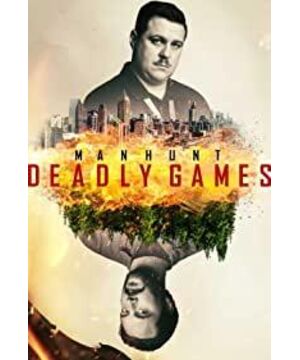The CNN documentary "The Case of the Century - University Air Bomber" that I watched first, the film just described the process of solving the case in a straightforward manner. It has very little portrayal of ted himself, who is he, and why he did it. The understanding, let alone the emotional understanding, is very boring.
Then watch the 8-episode FBI crime investigation drama "Manhunt: Unabomber" on Discovery Channel, directed by Greg Yaitanes (participated in the first and second seasons of Prison Break) and written by Andrew Sodroski. As can be seen from the title, this film still adopts the main perspective of the FBI, telling how to catch the bomber, but this time I watched it very well.
Fitz is an ordinary patrol policeman from a small place without a high degree. Because he is unwilling to compromise the illegal behavior of his superiors, he has not been promoted in the past ten years. Admitted to the FBI profiler with a high score (through the analysis of the modus operandi, scene layout, crime characteristics, etc., to outline the criminal mentality of the criminal, so as to facilitate the police to narrow the scope of the search and stop the continuation of the crime in time.) Participate in Unabomber's investigation, He is smart, but he is not good at communicating with people; he is talented, but he is not appreciated by the leaders; the FBI is no longer where he proves himself, but it is no different from before - follow the leader's words and be a working machine. While he felt humiliated, he was unwilling to give in.
The play adopts non-linear editing, mixing the main line of the investigation in 1995 with the confrontation between Fitz (the detective) and ted (the criminal) in 1997 about whether or not to deny guilt, so that the viewer has an objective understanding of ted - he is a criminal , smart, careful, indifferent, marginal. The most important thing is that this kind of editing, driven by the plot, increasingly intertwines and overlaps the characters and ideas of the detective and the criminal. The audience will find that the two are surprisingly similar, equally smart, and equally poor at communicating with others. The same desire for the opportunity to prove themselves, the desire to be respected, the desire to be free.
So far, the Unabomber is no longer an empty Idea, but a person with flesh and blood, character and thought.
The stacking of bricks, the guidance of clues. On the eve of the arrest of Ted, this drama devoted an episode (Episode 6) to the narration of Ted's letter to his younger brother, telling the story of Ted's growth from childhood to adulthood. How he learned to love and how he was betrayed again and again. What a high IQ brings him is not honor, but a deep sense of loneliness; what he loves is not concern, but a lot of humiliation. He also yearns for the connection and fetters between ordinary people, but the things he has experienced and the thinking given him by wisdom make him unable to yield. I can only sigh over and over again at the end: "My life wasn't supposed to go like this." The
ending is set, and history has determined that ted is destined to be imprisoned for life in a 10X12m prison, but the audience still sees a man who would rather accept the death penalty. A thinker who doesn't want his work to be misinterpreted; sees a man who is at a loss for the speech and duties of a victim. The process of entering the prison is an extremely humiliating process, losing freedom, losing the scenery, when ted stood naked in front of the prison guard, his face was expressionless, it was difficult to know what he was thinking, whether it was a victory as a thinker, or as a criminal s failure. In any case, he will no longer have the possibility of freedom or happiness.
Whether he is a demon or another victim of modern society, I believe that after watching this play, the audience will have their own judgment.
This documentary is so different from the American drama viewing experience. The biggest difference lies in the character creation. The audience will hate the criminal because of his cruel practices, and will also sympathize with him because of his upbringing. Moreover, this play not only portrays the character of the criminal ted very completely, but also spends a lot of pen and ink on the portrayal of the detective Fitz. Even a lot of the audience's knowledge of ted in the early stage is based on the character of Fitz, which is non-linear. Credit for the clip. It is worth adding that the difference between the two is also worth thinking about. Ted has been betrayed all his life. Even at the final trial, he was still deceived by the defense lawyer like a child. In the face of constant choices, he chose to use, choose to betray, and in the end, he didn't even share the joy of victory. Maybe later, whenever he sees the red light coming on, he can torture himself in the depths of his heart.
The film did not downplay the role of audio-visual language because of the emphasis on the plot. The prison-style composition appeared in various places; the countless red lights that Fitz encountered while driving... are all worthy of discussion (maybe I can write a separate article when I have time in the future). I highly recommend this film for everyone to watch. I think the opening of the first episode and the ending of the last episode are very worthy of aftertaste and reflection. We can all carry out an inner torture with Fitz and ted.
View more about Manhunt reviews











